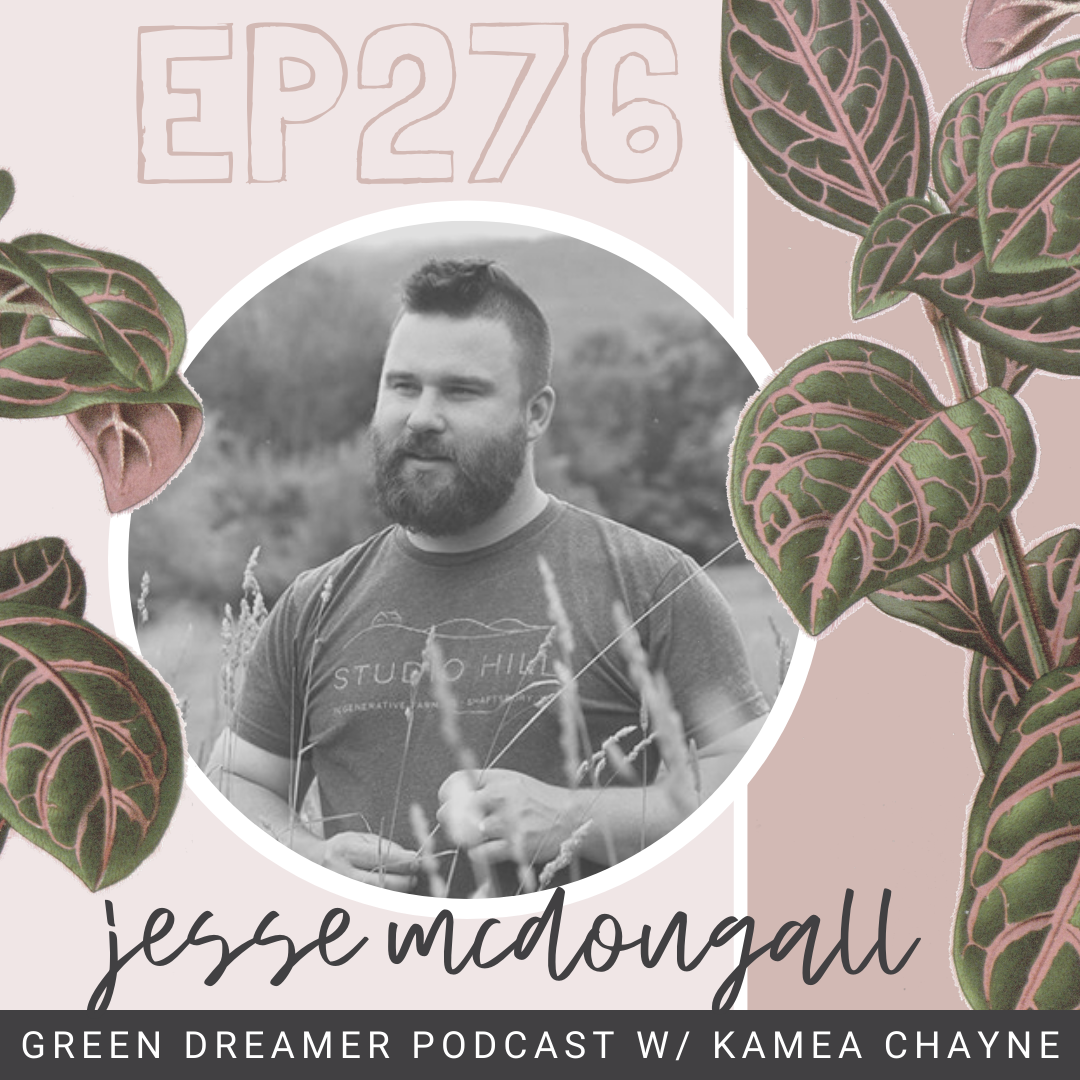Jesse Mcdougall: Welcoming wildlife and biological abundance to regenerative agroecosystems
Jesse McDougall (@studiohillvt_jesse) is a regenerative farmer at Studio Hill Farm (@studiohillvt). He is an Accredited Professional with the Savory Institute, the co-founder of Regenerative Food Network, an advisory board member for Soil4Climate, and the author of the first regenerative agriculture legislation.
In this podcast episode, Jesse sheds light on his experience writing legislation in support of regenerative agriculture in Vermont; why measurements focused on carbon alone are too limiting and inadequate indicators of land restoration and soil health; and more.
To start, get a glimpse below into the conversation between Jesse and Green Dreamer Podcast's host, Kamea Chayne.
Musical feature: Trust The Sun by Politician Man by Adrian Sutherland
“We are trying to recreate that movement of the bison and the birds across our fields. We never till. Our motto is carbon down, carbon down, carbon down. But, I find it widely inadequate to measure our success by the amount of carbon in the soil.”
If you feel inspired by this episode, please consider donating a gift of support of any amount today!
This is a conversation on Green Dreamer with Kamea Chayne, a podcast and multimedia journal illuminating our paths towards ecological regeneration, intersectional sustainability, and true abundance and wellness for all. This preview has been edited for clarity. Subscribe to Green Dreamer Podcast on Apple Podcasts, Spotify, or any podcast app, and support Green Dreamer on Patreon so we can keep the show going and accessible to a wider audience!
On the restorative practices Studio Hill Farm is implementing:
"We are trying to recreate that movement of the bison and the birds across our fields. We never till. Our motto is carbon down, carbon down, carbon down. But, I find it widely inadequate to measure our success by the amount of carbon in the soil."
On the limitations of measuring carbon content to determine ecological restoration:
"There are dry years where more carbon goes out and wet years where more carbon goes in, so if we're trying to measure a metric of success of this farming model, it should not be the content of an ecosystem because that is up and down and difficult to control.
There's been a lot of talk about payments for ecosystem services and carbon markets for years and it's never materialized because we're focusing too narrowly on carbon in the soil as though it's an industrial system.
[‘Carbon markets act] as though we can put one block of carbon underground, put it there, and assume it's done. These are fluid systems and if we take a different perspective and look at it in geological time, things are always moving up and out—sometimes, farmers have very little control over it."
Final words of wisdom:
"Don't stop dreaming. The future you dream of is possible."
Podcast Sponsor:
Made Trade is a woman-owned, family-run, consciously curated online shop for everything from home goods to clothing, accessories, and, holiday gifts. Every purchase directly supports small businesses, independent makers, as well as artisan communities from around the globe working to preserve their own biocultural diversity and craftsmanship. Made Trade also donates a percentage of every purchase to the nonprofit Fibershed, dedicated to revitalizing local, regenerative textile systems. If you’re looking for ethically made, eco-conscious, and fair trade gifts for loved ones or yourself this holiday season, check out Made Trade and get 10% off your first order at MadeTrade.com/greendreamer.

